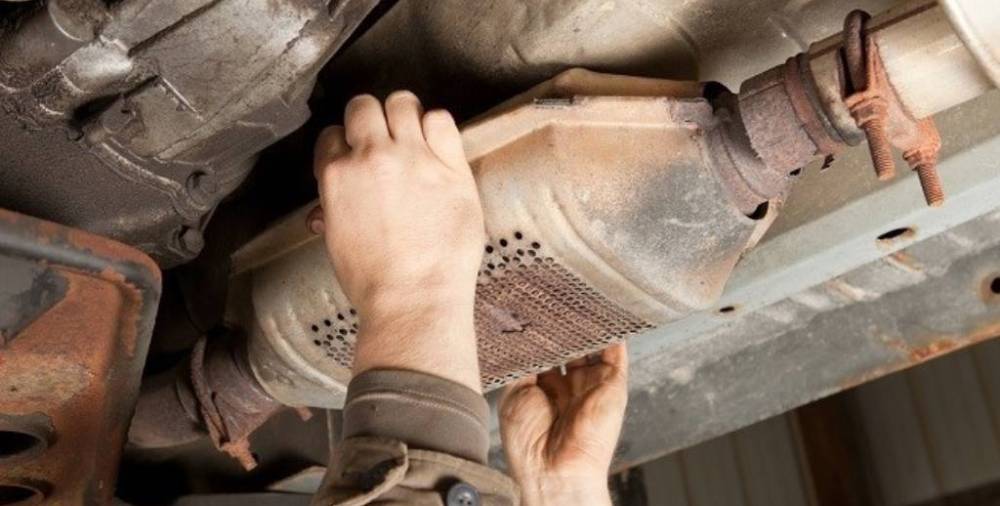Replacing a catalytic converter can be a costly and time-consuming process. If your car has reached the point where its catalytic converter needs to be replaced, you may find yourself facing hidden costs that you didn’t anticipate.
This article will cover the hidden fees associated with replacing your vehicle’s catalytic converter and what you need to know before making this important decision.
From understanding warranty coverage to researching labor costs, will discuss all of the details so that you are prepared for any surprises in the store when it comes to repairing or replacing your car’s essential parts.
Environmental Benefits of Installing a New Catalytic Converter

Replacing a catalytic converter can have many environmental benefits. Installing a new and improved catalytic converter can reduce toxic emissions, making it more eco-friendly.
The newer models are designed to maximize efficiency by converting carbon monoxide into harmless gases like oxygen, nitrogen, and water vapor which help improve air quality in the local environment. Newer catalytic converters also produce less noise pollution than older ones due to their construction materials being better insulated from vibration.
Additionally, some state laws require that vehicles be equipped with specific types of these devices for safety compliance reasons, ultimately resulting in cleaner air for everyone living in the area.
All of these factors demonstrate why replacing an old or worn-out catalytic converter is not only beneficial for your car but also helps protect our planet’s environment as well.
Time Investment for Replacing the Catalytic Converter
Replacing a catalytic converter is a time-consuming process. It requires knowledge, skill, and the right tools to do it correctly.
Depending on the type of car being worked on, replacement times can range from as little as two hours for an older model to up to 10 hours for more complex vehicles.
The cost of labor will always be present when replacing this part, but there are also hidden costs that come along with investing in time.
These include having access to specialist diagnostic equipment which may be required during the fitting process; sourcing parts from dealerships or aftermarket suppliers which may carry extra charges; and dealing with unexpected problems such as faulty bolts or missing components during installation.
All of these factors must be taken into consideration before deciding how long it will take to replace a catalytic converter.
Potential Complications from Failing to Replace the Catalytic Converter

Potential complications of failing to replace a catalytic converter can be severe, ranging from increased emissions and decreased engine performance to costly fines and even damage to other car components.
Without the proper functioning of the catalytic converter, exhaust gases will not be filtered properly resulting in dangerous pollutants being released into the air. This could lead to more frequent oil changes as well as a decrease in fuel economy due to the system having difficulty managing exhaust fumes correctly.
In addition, if left unchecked for too long your vehicle could face costly fines from local authorities which could have been avoided with timely maintenance.
Finally, without regular replacement of the catalytic converter, there is an increased risk of more serious damages like clogged fuel injectors or damaged spark plugs.
All these problems are easily preventable with scheduled maintenance but can be extremely expensive should they go undetected or ignored for too long.
Shopping Around for the Best Price on Parts and Labor
When it comes to replacing a catalytic converter, most people think only of the cost of the parts and labor. What many don’t realize is that there are other hidden costs associated with this repair.
Shopping around for the best price on parts and labor can help you save money in the long run, but it’s important to know what else could be involved in such a project. It might not always be obvious up front how much extra work will need to be done or what additional materials may be required to complete the job correctly.
Doing research beforehand can help ensure that you aren’t hit with any unexpected fees once repairs have begun. Knowing exactly what type of catalytic converter your car needs will also save time and money when shopping around for prices from different vendors or mechanics.
Additionally, seeking out reputable companies who offer warranties on their replacement parts can give more peace of mind during an already stressful process.
Ultimately, being aware of all potential costs before beginning a replacement project is key when trying to get back on the road without breaking your budget.

Conclusion
Replacing a catalytic converter can be an expensive endeavor, but the hidden costs associated with it are often overlooked.
From additional labor and parts to have to adjust the exhaust system or even replace other components, there is a lot more involved than just swapping out one part for another.
This makes it important for car owners to be aware of all the potential expenses involved in catalytic converter replacement costs.
Taking care of this task promptly will also help ensure that your vehicle remains roadworthy and able to pass emissions tests to stay legally compliant.







